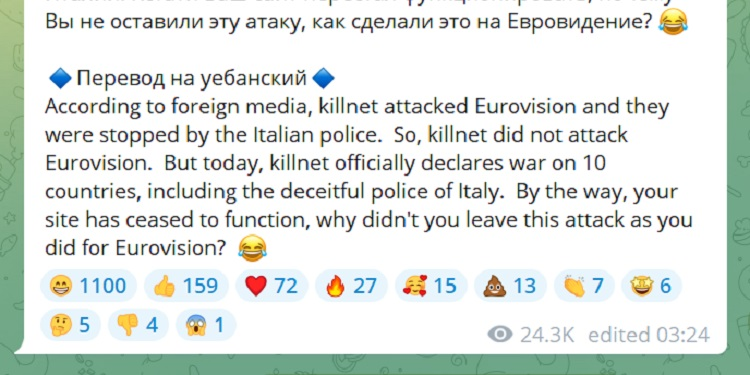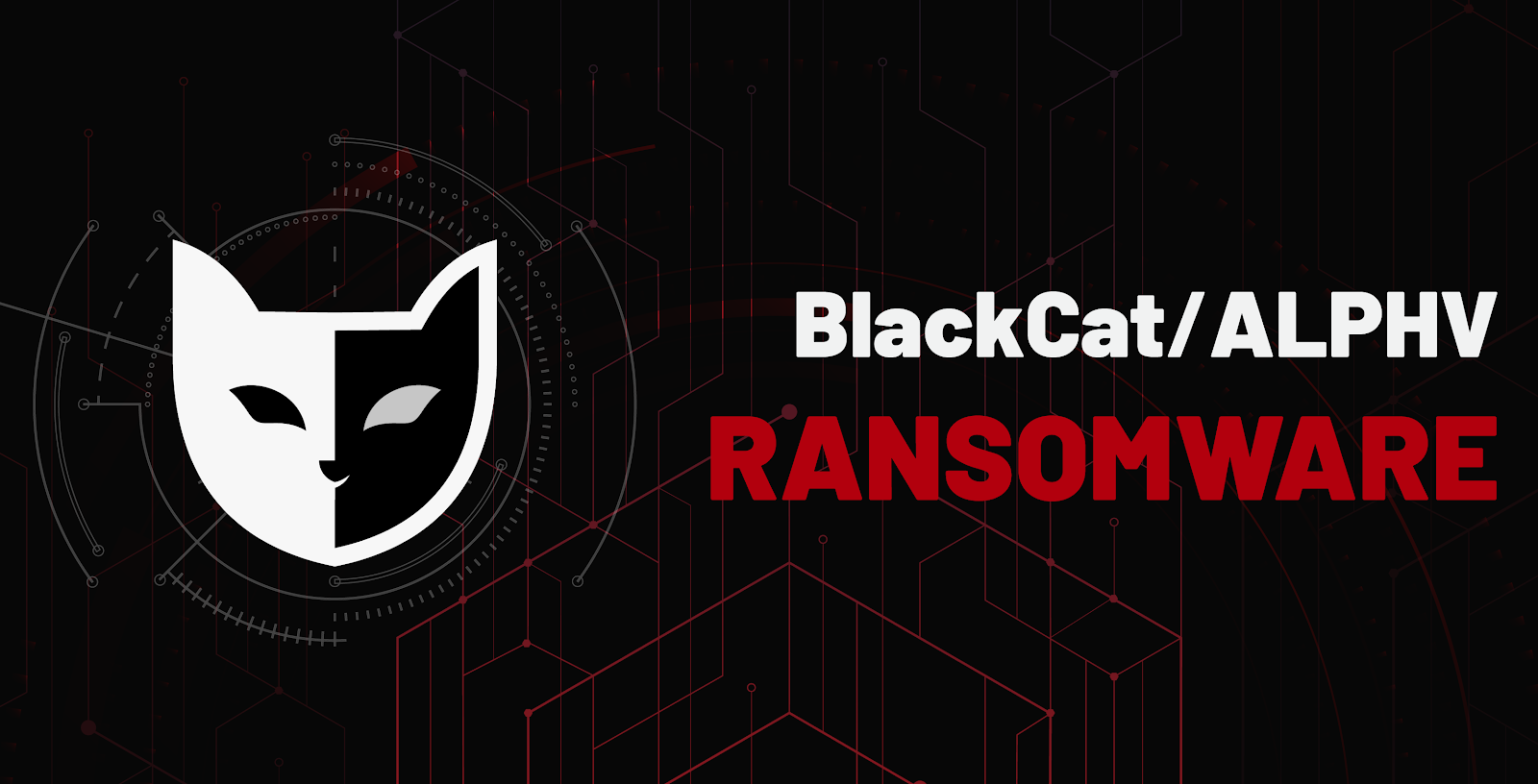Eurovision cyberattack: pro-Russian hackers declared 'war' on ten states
A pro-Russian hacker group that targeted the Eurovision song contest declared 'war' against Italy and ten other countries.
By Vilius Petkauskas, Cybernews
Killnet, a pro-Russian hacker group, was not happy the Italian police announced successfully blocking distributed denial-of-service (DDoS) attacks on the Eurovision song contest hosted by Italy.
The Italian police announced that hackers had unsuccessfully tried to infiltrate the opening night and the finals of the song contest. Ukrainian folk-rap band Kalush Orchestra (pictured in the lead photo) performed on both nights of the attacks.
Despite the attempted attacks, however, Ukraine went on to win the Eurovision song contest. In contrast, Russia was barred from the event, boasting a viewership of 200 million, due to Moscow's invasion of Ukraine on 24 February.
The Italian authorities claim that over 100 officers monitored the event, thus preventing attempts to hinder the contest that most European nations took part in.
"In collaboration with ICT Rai and Eurovision TV, various computer attacks of a DDoS nature aimed at network infrastructures during voting operations and singing performances were mitigated," reads the statement by the Italian authorities.
Killnet hinted at targeting the opening night of the song contest last week, discussing a DDoS attack on the voting system of the event on their official Telegram channel. Later, the group said it could continue that attack if it intended to but expressed no such interest.
Once the Italian police announced they had successfully prevented attempted cyberattacks on the Eurovision song contest, Killnet posted a message claiming the group was not behind the failed attacks.
"According to foreign media, Killnet attacked Eurovision and they were stopped by the Italian police. So, Killnet did not attack Eurovision," said the group's post.
However, implying retaliation, the same post said the group will now 'declare war on ten countries and the Italian police. The group posted a video claiming it will attack the US, the UK, Germany, Italy, Latvia, Romania, Lithuania, Estonia, Poland and Ukraine.
The message in Russian said that the group selected the nations because of their support for 'Nazis' and 'Russophobes,' a common trope Russian propaganda uses to describe anyone supporting Ukraine's resistance against invading Russian forces.
The pro-Russian group has been on a spree recently. Government websites in Italy, Romania, Germany, as well as websites in Czechia, Latvia, and elsewhere were under Killnet's cyber fire.
Competing hacker groups launched numerous attacks after Russia invaded Ukraine. Anonymous, Ukraine's IT Army, Hacker Forces, and many other hacktivist groups started targeting Russia's state-owned enterprises and businesses.
Meanwhile, prominent ransomware cartel Conti and groups like Killnet and others expressed allegiance to Moscow.
According to the United Nations, the Russian invasion of Ukraine has created the 'fastest-growing refugee crisis in Europe since World War II.' Over 11 million people were displaced due to the conflict, with over 6.1 million fleeing the country.
Witness testimonies from Ukrainian towns Russian forces have occupied for close to a month point to severe human rights violations and targeted lethal attacks against civilians. Reports of "gross and systematic violations and abuses of human rights" got Russia suspended from the UN Human Rights Council.



Comments
Post a Comment